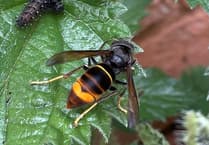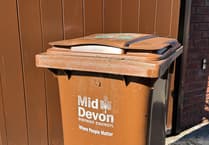LESS than a fifth of Mid Devon’s rivers are rated good for water quality, with run-off from farms and rural land development predominantly to blame.
Data from the Environment Agency presented to councillors in Mid Devon showed that just 17 per cent of the district’s 58 rivers boast good water quality, while 62 per cent are rated “moderate” according to its latest survey.
A total of 16 per cent are “poor” and five per cent “bad”, the agency’s Clarissa Newell told councillors.
However, she added that the news is not “all terrible”, noting that water quality had improved lately with fewer large incidents reported.
Mid Devon’s figures are roughly in line with the national average.
Ms Newell’s presentation formed part of a wider discussion by councillors on the authority’s motion linked to protecting rivers and the sea.
The council heard from Richard Marsh, its director of place and economy, that the council is commissioning consultants to conduct a water cycle study, as well as researching how other local authorities sought additional information from water companies through the planning process.
Mid Devon plans to ask South West Water which treatment works would manage sewage from major developments and whether that site has the capacity to deal with the extra demand.
It also wants information on the number and duration of sewage discharges into any local rivers or sea.
At present, the Environment Agency relies on water companies to report sewage discharges.
So-called Combined Sewer Overflows, or CSOs, are permitted during heavy rainfall to enable sewer pipes to cope with extra water.
This means water companies can release untreated human sewage and waste water into waterways.
Such events are only supposed to happen in exceptional circumstances, but campaigners claim that water companies use CSOs too frequently.
Ms Newell said that South West Water had been fined £2.1 million by her agency in 2023 after a serious pollution incident at Crediton’s sewage treatment works in 2017.
She said that as SWW cleaned out a ferric sulphate tank and allowed the wash water to enter the River Creedy, it turned the bed of the river orange and killed hundreds of fish.
Bradley Gerrard
LDRS





Comments
This article has no comments yet. Be the first to leave a comment.